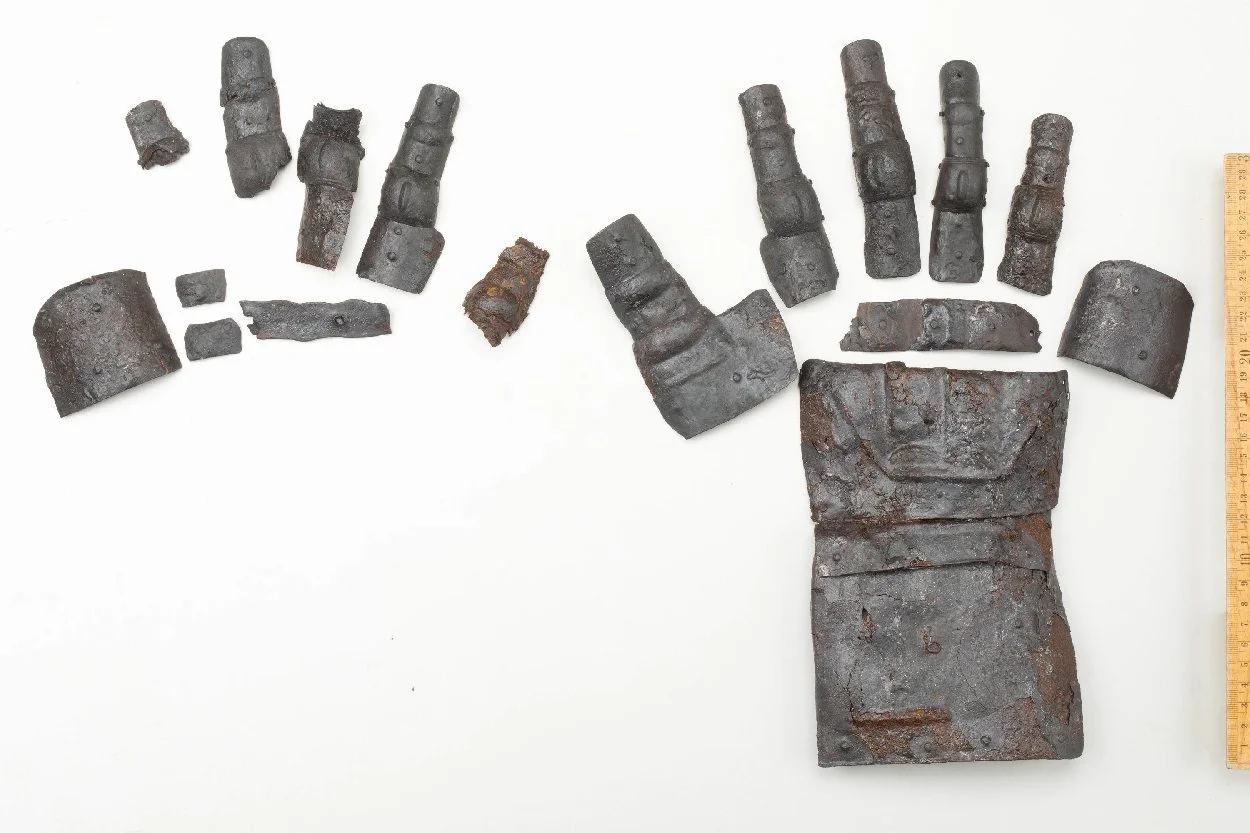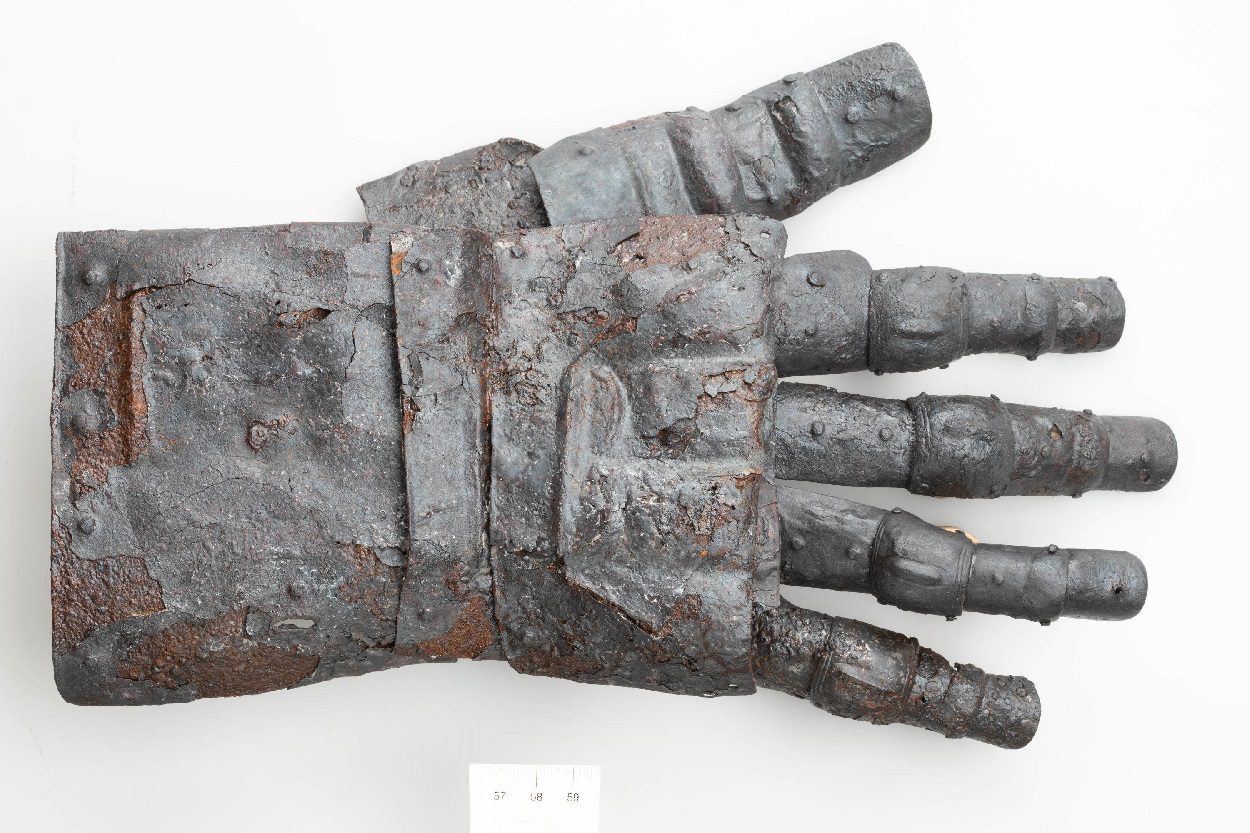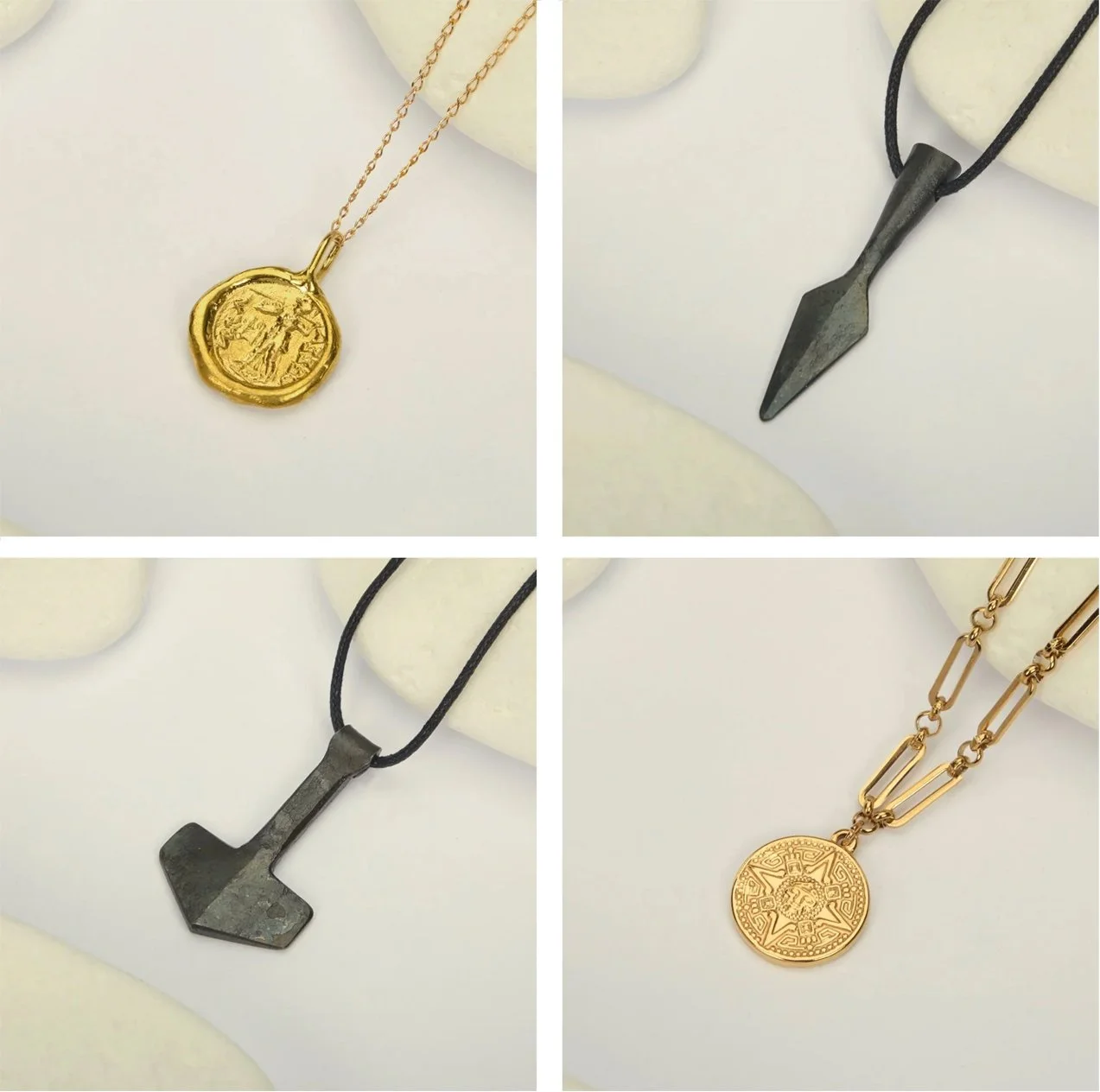A press conference by the Canton of Zurich has announced the discovery of an intact medieval gauntlet dated to the 14th century.
The object was found during excavations to the southeast of Kyburg Castle, located in Kyburg in the district of Pfäffikon, Switzerland.
The settlement of Kyburg grew up around Kyburg Castle, which during the medieval period was known as Chuigeburch (meaning “cows-fort”).
The castle today stands as one of the most expansive medieval castle complexes in Switzerland, comprising a bergfried and palas, complemented by residential and economic structures and a chapel.
Excavations adjacent to the castle have found a medieval weaving cellar which was destroyed by fire during the 14th century, and traces of forging which is evidenced by the discovery of a mold and over 50 metal objects associated with smithing.
Archaeologists also found a hammer, tweezers, pliers, keys, knives, bullet points, and a completely preserved 14th century gauntlet, in addition to fragments of its counterpart worn on the other hand.

The intact gauntlet is a four-fold finger glove worn on the right hand, which has individual iron plates stacked like scales and linked together through side rivets. The individual glove components were fixed to the interior using supplementary rivets on a leather or textile base, which in turn was stitched onto the fabric.
According to the press announcement: “The previously known gauntlets from museums and collections mostly date back to the 15th century at the earliest. Older examples from the 14th century, however, are extremely rare. So far, only five other gauntlets from this period have been found during archaeological excavations in Switzerland, although none of these pieces is anywhere near as well preserved and shows as many details of design and decoration as the Kyburg gauntlet.”
Header Image Credit : Canton of Zurich








